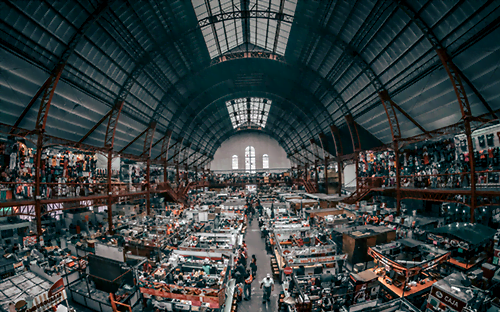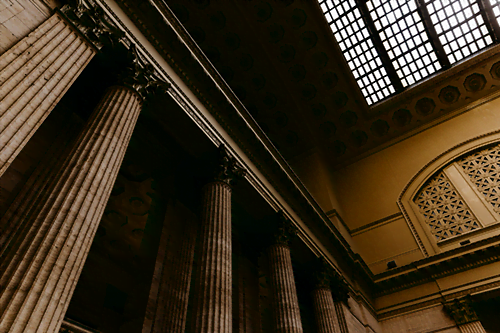1. Definition of unfair competition
The Intellectual Property Law 2005, as amended and supplemented in 2009, 2019, and 2022 (hereinafter referred to as the “IP Law”), does not define what constitutes unfair competition with respect to industrial property rights. The Paris Convention for the Protection of Industrial Property 1967 stipulates that any act contrary to honest practices in industrial or commercial matters constitutes an act of unfair competition. The Competition Law 2018 defines unfair competition as acts by an enterprise that contravene the principles of good faith, honesty, commercial practices, and other business standards, causing or likely to cause damage to the legitimate rights and interests of other enterprises. Based on these definitions, unfair competition, in essence, refers to acts that violate honest and ethical standards in commercial relations, primarily causing damage to enterprises.
2. Distinction between the concept of unfair competition under the competition law and the intellectual property law
Although both competition law and intellectual property law regulate unfair competition, the concept of unfair competition under these two legal frameworks possesses distinct legal characteristics.
Intellectual property law protects the exclusive rights to use and exploit protected creative products, incentivizing enterprises to innovate and enabling consumers to access new products. In contrast, competition law establishes a fair competitive environment, preventing acts or agreements that restrict competition and negatively impact other enterprises or consumers. Generally, the effects of unfair competition under both laws are similar; however, the scope of unfair competition under the Competition Law is broader than that under the IP Law. Specifically, the objects protected by provisions on unfair competition under the IP Law are intellectual property rights that are legally protected, which is narrower than those under the Competition Law. The acts of unfair competition under competition law and intellectual property law are specified in the respective provisions as follows:
| Competition Law 2018
(Clause 1 Article 45 Competition Law 2018) |
Intellectual propterty law 2005, amended, supplement in 2009, 2020 và 2022
(Clause 1 Article 130 Intellectual propterty law) |
| 1. Trade secret infringement in the following forms:
a) Assessing and acquiring trade secrets by going against security measures of the owner of such trade secrets; b) Disclosing or using trade secrets without consent of the owner. 2. Forcing customers or business partners of other enterprises through threatening or coercion so that they do not enter in transaction or stop transaction with such enterprises. 3. Discrediting competitors through directly or indirectly providing untruthful information about such competitors which negatively impacts their goodwill, financial status or business operation. 4. Disrupting competitors’ business through directly or indirectly interrupting or disrupting their legitimate business operation. 5. Illegally luring customers through: a) Providing false or misleading information to customers about the enterprise or products, services, sale promotion programs, transaction conditions related to the products or services provided by the enterprise to attract customers of competitors; b) Comparing products, services of the enterprise with those of the same kinds of competitors without evidence to prove the comparison. 6. Sale of goods and services below cost that drives or probably drives competitors out of the market. 7. Other prohibited unfair competition practices prescribed in other laws. |
a) Using commercial indications that cause confusion regarding the business entity, business activities, or commercial origin of goods or services;
b) Using commercial indications that cause confusion regarding the origin, production method, features, quality, quantity, or other characteristics of goods or services, or regarding the conditions for providing goods or services; c) Using a trademark protected in a country that is a member of an international treaty, which prohibits the representative or agent of the trademark owner from using such trademark and of which the Socialist Republic of Vietnam is also a member, if the user is the representative or agent of the trademark owner and such use is without the owner’s consent and lacks justifiable reasons; d) Appropriating or using a domain name identical or confusingly similar to another person’s protected trademark, trade name, or geographical indication, without having the right to use it, with bad faith to exploit the reputation or goodwill of the corresponding trademark, trade name, or geographical indication for illicit profit. |
Clause 7, Article 45 of the Competition Law 2018 provides an open provision, stating that “other unfair competition acts prohibited under other legal provisions” are also covered. Concurrently, Clause 2, Article 4 of the Competition Law 2018 regulates the application of laws in case of discrepancies between legal provisions: “In cases where other laws provide regulations on restrictive competition practices, forms of economic concentration, unfair competition acts, and the handling of unfair competition acts that differ from the provisions of this Law, the provisions of those laws shall apply.”
Based on these two provisions, can it be asserted that when there is a discrepancy in legal provisions regarding unfair competition in the field of intellectual property, the IP Law will automatically apply? According to Clause 4, Article 58 of the Law on Promulgation of Legal Normative Documents 2015: “In cases where legal normative documents issued by the same authority contain different provisions on the same issue, the provisions of the legal normative document issued later shall apply.” The Competition Law was enacted and took effect on July 1, 2019, after the effective date of the IP Law (July 1, 2006). Under this principle, the Competition Law would take precedence. However, Vietnamese law also applies the principle of “prioritizing specialized law over general law.” Considering Clause 2, Article 4 of the Competition Law 2018, the provisions of specialized law shall take precedence in case of discrepancies. Therefore, the IP Law is prioritized for application to unfair competition acts related to industrial property objects.
Disclaimers:
This article is for general information purposes only and is not intended to provide any legal advice for any particular case. The legal provisions referenced in the content are in effect at the time of publication but may have expired at the time you read the content. We therefore advise that you always consult a professional consultant before applying any content.
For issues related to the content or intellectual property rights of the article, please email cs@apolatlegal.vn.
Apolat Legal is a law firm in Vietnam with experience and capacity to provide consulting services related to Competition and contact our team of lawyers in Vietnam via email info@apolatlegal.com.





























